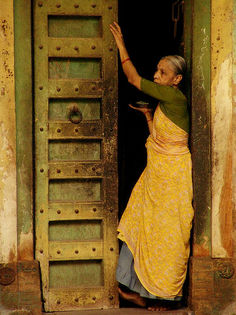The Harsh Reality of Marital Rape in India
/ Many women in India are reticent to acknowledge or report rape by their spouses. Photograph by flickr user Saad.Akhtar used under Creative Commons licenses. Reading Lesley D. Biswas’s WIP story Marital Rape: Still an Underreported Crime in India leaves me reflecting on conditions in America as well. Rape by a stranger is a very different concept than rape by one’s husband.
Many women in India are reticent to acknowledge or report rape by their spouses. Photograph by flickr user Saad.Akhtar used under Creative Commons licenses. Reading Lesley D. Biswas’s WIP story Marital Rape: Still an Underreported Crime in India leaves me reflecting on conditions in America as well. Rape by a stranger is a very different concept than rape by one’s husband.
There’s no question in our minds that husbands should not coerce their wives into sexual relations. My only sense is that whatever consequences an American woman would experience from trying to press rape charges in the US, they are five time, 10 times greater for an Indian woman and most other women in developing countries that tend to be patriarchal.
In a 1996 study cited in this quickly Googled research of marital rape in America, 50% of college-educated males didn’t believe that it was possible for a husband to rape his wife. Sexual relations are implicit in the martial agreement.
I doubt that American women would feel that their refusal warranted wife beating, unlike the 70% of Indian women who believe that denying their husbands sex does justify a beating. The figure of two-thirds of India’s married women between the ages of 15 and 49 saying they have been raped is terrible.
Again, when writing about Indian women prosecuting rape charges against their husbands, it was only in 1993 that marital rape became a crime in all 50 states. In 30 states, there continue to be exemptions to marital rape laws and prosecutions are very rare.
Marital rape and unwanted intercourse, especially with husbands competing to make babies in acts of macho competition, is a grave health challenge for women in India and all over the developing world. In America, the rape is frequenly about sex but not necessarily conceiving a child.
This reality creates a terrible additional burden for Indian women trying not to conceive again so quickly. NGO leaders are right to say that Indian women must ask more for themselves, but this is easy for us to say.
One of the more promising stories we’ve published lately is the IWT Celebrations story about FGC in Somalia. Tostan, the organization that we’re following closely and featured in “Half the Sky”, believes that only communities can effectively make these critical changes in women’s lives.
The scene described at last week’s mixed gender, village celebration to end FGC focused on men playing positive roles onstage, being participants in a change of local values and customers. Yes, the women lead the initiative but men are part of the celebration.
With men’s agreement in patriarchal societies, I don’t see how women prosecute marital rape charges. Anne
Reading: Tostan News: 14 Somalia Villages Make History Collectively Abandoning FGC IWR
Marital Rape: New Research and Directions National Online Resource Center on Violence Against Women (not Indian)























































